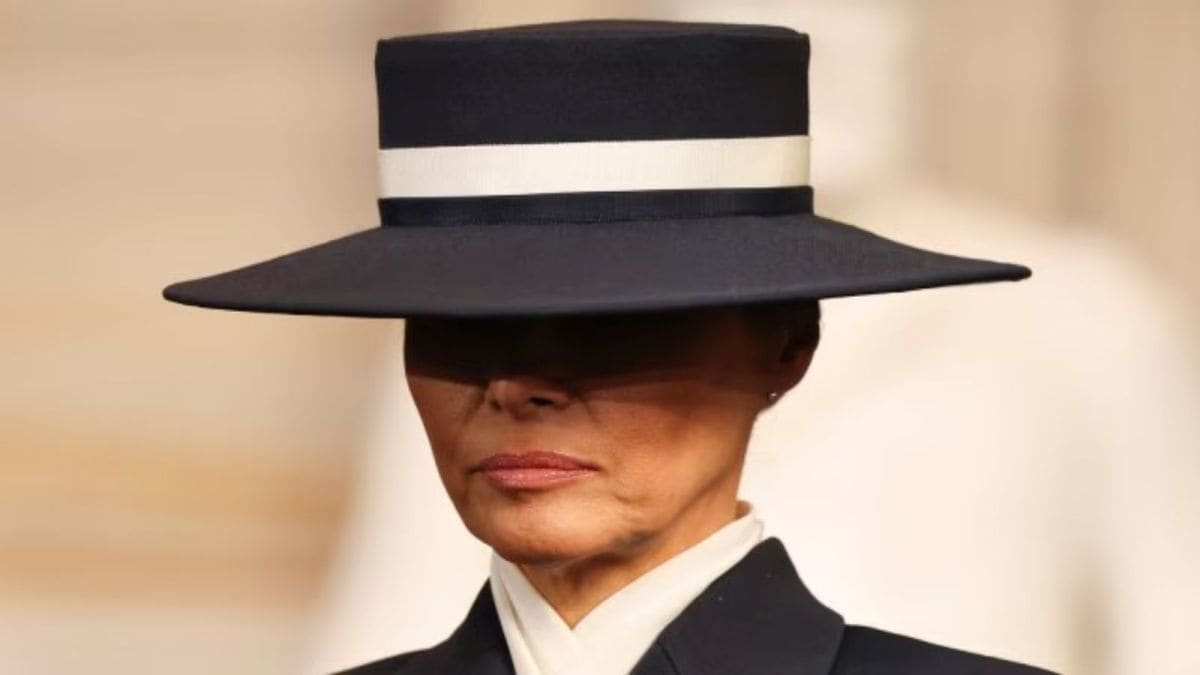Stay updated with the latest - Click here to follow us on Instagram
‘The math ain’t mathin’ here’: Why Melania Trump’s ‘Einstein visa’ is under scrutiny
In order to qualify for an Einstein visa, the recipients need to demonstrate exceptional ability or significant achievement.

In a charged exchange during a House Judiciary Committee meeting in the US on Wednesday, Democratic Congresswoman Jasmine Crockett took aim at First Lady Melania Trump — questioning how she qualified for an EB-1 visa roughly 25 years ago.
Often dubbed the “Einstein visa”, the EB-1 is intended for individuals with extraordinary ability in fields such as science, arts, education, business, or athletics. US government guidance cites Nobel, Pulitzer, and Oscar winners, as well as elite athletes and executives, as examples of typical recipients.
“The first lady, a model — and when I say model, I’m not talking Tyra Banks, Cindy Crawford, or Naomi Campbell-level — applied for and was given an EB-1 visa,” Crockett said.
“Let me tell you how you receive an Einstein visa,” she continued. “You’re supposed to have some sort of significant achievement, like being awarded a Nobel Peace Prize or a Pulitzer, being an Olympic medallist, or having other sustained extraordinary abilities and success in sciences, arts, education, business, or athletics. Last time I checked, the first lady had none of those accolades under her belt. It doesn’t take an Einstein to see that the math ain’t mathin’ here.”
Melania Trump, then Melania Knauss, was a Slovenian model living in New York when she applied for the EB-1 in 2000. It was approved in 2001. She later sponsored her parents for citizenship.
According to her lawyer, Melania Trump first arrived in the US in 1996 on a tourist visa, later securing a series of work visas for skilled immigrants. At the time she applied for her green card, she had worked as a runway model in Europe and featured in a limited number of UK and US magazines.
She appeared on the cover of British GQ posing on a fur rug aboard Donald Trump’s private jet — a shoot that came after their relationship, which began in 1998, significantly boosted her public profile.
Her case has drawn particular attention because her husband, President Donald Trump, seeks to end what he calls ‘chain migration’ – the very policy that enabled his wife to sponsor her family. His proposed merit-based system would have blocked his in-laws’ sponsorships.
During the hearing, Crockett asked, “why aren’t we talking about integrity when it comes to the president’s family’s visas?”
Each year, roughly 40,000 EB-1 visas are allocated within the broader employment-based immigration quota, but demand, particularly from countries like India and China, often creates backlogs. The application process is rigorous, requiring a Form I-140 petition backed by voluminous evidence.